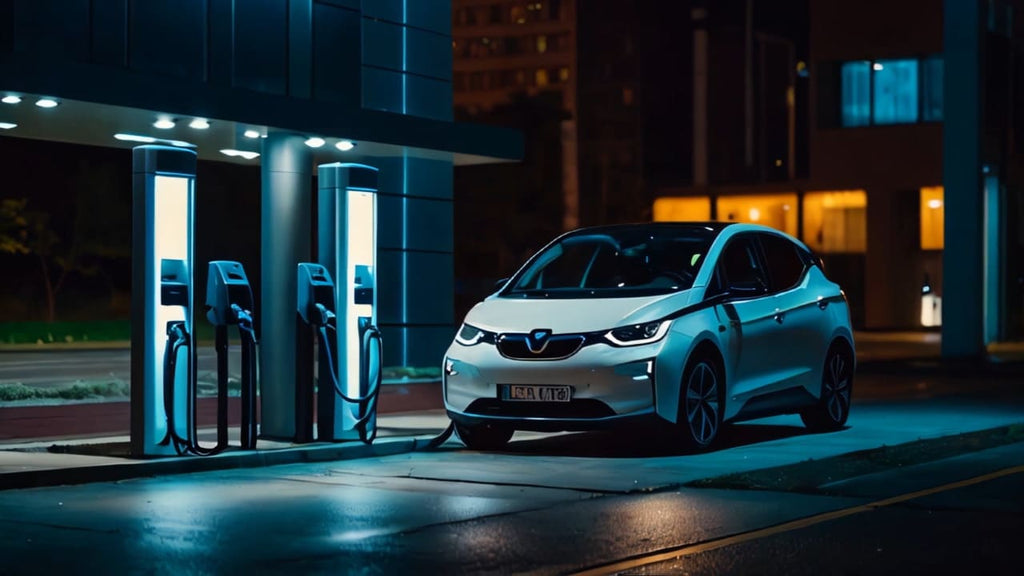The Future State of EV'S
Posted by CARWISE AUTO

The Future State of Electric Vehicles (EVs): What's Next?
As the world pivots toward sustainable energy, the electric vehicle (EV) market stands at the forefront of this transformative journey. Once a niche segment, EVs are now reshaping the global automotive landscape, promising cleaner air, reduced dependence on fossil fuels, and a leap toward technological innovation. But what does the future hold for EVs? Let's explore the trends and advancements set to define the next decade.
1. Advanced Battery Technology
The heart of an EV is its battery, and advancements in battery technology are unlocking new potentials. Solid-state batteries, for instance, are set to replace the current lithium-ion systems, offering higher energy density, faster charging times, and enhanced safety. These innovations could enable EVs to travel farther on a single charge while reducing costs, making them more accessible to a wider audience.
2. Expansion of Charging Infrastructure
Range anxiety, a common concern among potential EV buyers, is gradually being addressed through the rapid expansion of charging networks. Governments and private companies are investing heavily in ultra-fast chargers, wireless charging pads, and solar-powered stations. Future charging infrastructure will likely integrate with smart grids, allowing vehicles to charge during off-peak hours and even feed energy back into the grid when needed.
3. Increased Affordability
One of the primary barriers to widespread EV adoption has been cost. However, economies of scale, government subsidies, and advancements in manufacturing are driving prices down. By 2030, EVs are expected to reach price parity with traditional internal combustion engine (ICE) vehicles, making them a viable option for the average consumer.
4. Integration with Autonomous Driving
EVs and autonomous driving technologies are evolving hand-in-hand. As self-driving technology matures, EVs are likely to become the standard platform for autonomous vehicles (AVs) due to their simpler mechanics and compatibility with advanced sensors and software. This synergy will pave the way for fully automated fleets, revolutionizing ride-sharing and public transportation systems.
5. Diverse Model Offerings
Manufacturers are diversifying their EV portfolios to cater to different consumer needs. From compact urban cars to electric SUVs and even heavy-duty trucks, the variety of EV models is set to explode. This variety will ensure that every driver—whether a city commuter or a long-haul trucker—has an electric option.
6. Sustainability Beyond Zero Emissions
While EVs significantly reduce tailpipe emissions, the future will focus on making the entire lifecycle of a vehicle sustainable. This includes using recycled materials in manufacturing, creating eco-friendly batteries, and ensuring proper recycling or repurposing of old batteries. Companies are also exploring greener manufacturing processes, aiming for carbon-neutral production facilities.
7. Global Policy Support
Governments worldwide are pushing for EV adoption through incentives, stricter emission regulations, and bans on ICE vehicles. Countries like Norway have set ambitious targets to phase out gas-powered cars entirely by the mid-2030s. Such policies will act as catalysts, accelerating the global transition to EVs.
8. Energy Innovations
The integration of EVs with renewable energy sources, such as solar and wind, will redefine how we think about energy consumption. Vehicle-to-grid (V2G) technology will allow EVs to act as mobile energy storage units, supporting grid stability and promoting renewable energy adoption.
Challenges Ahead
While the future of EVs looks promising, challenges remain. The mining of raw materials like lithium and cobalt raises ethical and environmental concerns. Additionally, global supply chain issues and the need for workforce retraining in the automotive sector will require careful planning and innovation.
Conclusion
The future state of EVs is bright, driven by technological advancements, policy support, and growing consumer demand. As the world accelerates its shift toward sustainability, EVs will not just be vehicles but key players in a broader ecosystem of clean energy and innovation. The journey ahead is an exciting one, and the road to a greener tomorrow has never looked clearer.

